June 13, 2023 •
New Alaska Ballot Measure Introduced

Alaska State Capitol Buildling - Jay Galvin
A newly filed ballot measure has been introduced to reestablish campaign contribution limits in Alaska. In 2021, a federal appeals court struck down most of Alaska contribution limits on First Amendment grounds. The ballot measure would cap contributions at $2,000 […]
A newly filed ballot measure has been introduced to reestablish campaign contribution limits in Alaska.
In 2021, a federal appeals court struck down most of Alaska contribution limits on First Amendment grounds.
The ballot measure would cap contributions at $2,000 per election, with limits being adjusted for inflation every 10 years.
The new initiative will appear on the 2024 ballot if it is certified by the lieutenant governor and collects the requisite number of signatures.
June 18, 2019 •
Arkansas to Appeal Rejection of Campaign Finance Rule

A federal judge blocked a state law that prevents candidates for public office from accepting campaign contributions more than two years before an election. The ruling prompted an immediate appeal from the attorney general. Plaintiff Peggy Jones of Pulaski County […]
A federal judge blocked a state law that prevents candidates for public office from accepting campaign contributions more than two years before an election.
The ruling prompted an immediate appeal from the attorney general.
Plaintiff Peggy Jones of Pulaski County filed suit on April 5 over Arkansas Code 7-6-203(e).
Jones claimed the blackout period infringed on her First Amendment right of political expression by preventing her from donating money now to those she wishes to support as candidates in the 2022 election cycle.
Jones contended the blackout period is unconstitutional because it is not closely drawn to address the important governmental interest of preventing corruption.
She also claimed the law is over-broad because it bars all campaign contributions, including small contributions that do not present a potential for corruption.
U.S. District Judge James Moody Jr. granted a preliminary injunction on June 17, enjoining the state from enforcing the law during the pendency of the matter.
U.S. District Judge Charles Kornmann struck down a ban on out-of-state contributions to ballot question committees recently passed by voters. Kornmann found Initiated Measure 24 unconstitutional because it violates First Amendment rights to engage in political speech. Additionally, Kornmann said […]
U.S. District Judge Charles Kornmann struck down a ban on out-of-state contributions to ballot question committees recently passed by voters.
Kornmann found Initiated Measure 24 unconstitutional because it violates First Amendment rights to engage in political speech.
Additionally, Kornmann said the measure violates the Commerce Clause by interfering with the free flow of money between persons from another state and South Dakota committees.
The ruling is a permanent injunction that stops the planned implementation on July 1.
The state must now determine if it will appeal the decision to the U.S. Eighth Circuit Court of Appeals.
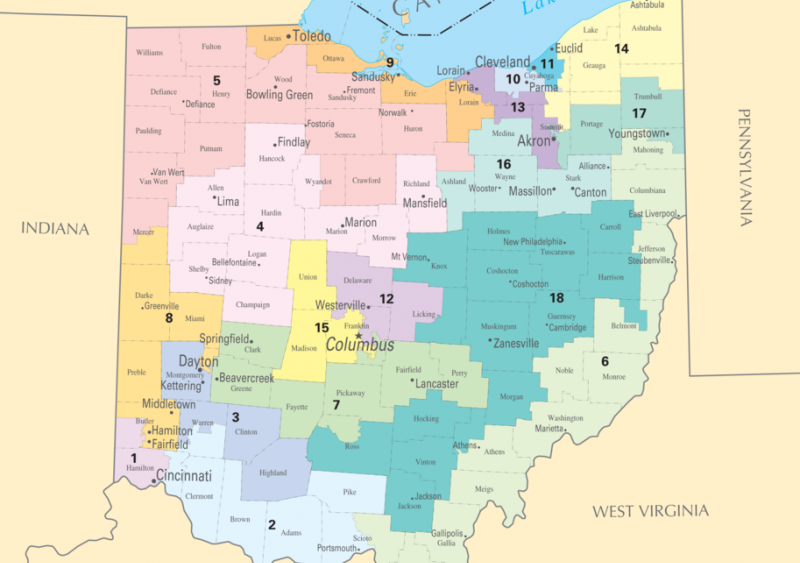
Ohio's Current Congressional Map
A three-judge federal panel unanimously ruled Ohio’s gerrymandered congressional district map unconstitutional under the First and 14th Amendments. On behalf of the League of Women Voters, the American Civil Liberties Union of Ohio filed the suit. The suit claimed the […]
A three-judge federal panel unanimously ruled Ohio’s gerrymandered congressional district map unconstitutional under the First and 14th Amendments.
On behalf of the League of Women Voters, the American Civil Liberties Union of Ohio filed the suit.
The suit claimed the congressional map disfavored democratic voters on the basis of their political affiliation.
The court ordered the state to create a new map by June 14 to prepare for the 2020 election.
January 7, 2019 •
Federal Judge Enjoins Maryland from Enforcing Provisions of Election Law
U.S. District Judge Paul W. Grimm, has enjoined Maryland from enforcing M.C.E.L. §§ 13-405 and 13-405.1. The statutes in question, require online platforms, like search engines and social media sites, to publicly disclose the contact information and amount paid by […]
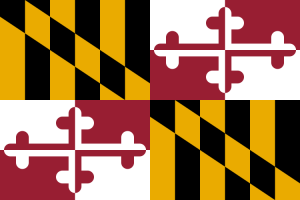 U.S. District Judge Paul W. Grimm, has enjoined Maryland from enforcing M.C.E.L. §§ 13-405 and 13-405.1.
U.S. District Judge Paul W. Grimm, has enjoined Maryland from enforcing M.C.E.L. §§ 13-405 and 13-405.1.
The statutes in question, require online platforms, like search engines and social media sites, to publicly disclose the contact information and amount paid by the purchaser to the online platform for the placement of the qualifying paid digital communication within 48 hours.
In the 50-page opinion, the judge concludes the statutes encroach on First Amendment freedoms. The state may file an interlocutory appeal.
November 30, 2018 •
Designated Lobbyists Required to Register in Missouri
On November 28, a panel of the U.S. Court of Appeals for the Eighth Circuit panel affirmed a district court ruling that Missouri statutes regarding lobbyist registration and reporting were constitutional. In Calzone v. Summers, The U.S. Court of Appeals […]
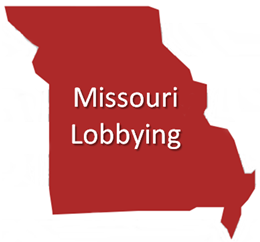 On November 28, a panel of the U.S. Court of Appeals for the Eighth Circuit panel affirmed a district court ruling that Missouri statutes regarding lobbyist registration and reporting were constitutional.
On November 28, a panel of the U.S. Court of Appeals for the Eighth Circuit panel affirmed a district court ruling that Missouri statutes regarding lobbyist registration and reporting were constitutional.
In Calzone v. Summers, The U.S. Court of Appeals for the Eighth Circuit upheld the United States District Court for the Western District of Missouri’s finding that the First Amendment does not shield unpaid individuals designated to act as a lobbyist from registration and reporting requirements under sections 105.470 and 105.473 of the Missouri Revised Statutes.
November 29, 2018 •
Alaska Law on Out-of-State Contributions Found Unconstitutional
The Ninth Circuit Court of Appeals held that the Alaska law regulating the annual aggregate limit on campaign contributions from nonresidents of Alaska is unconstitutional. Two members of the three-judge panel found the nonresident limit does not meet an important […]
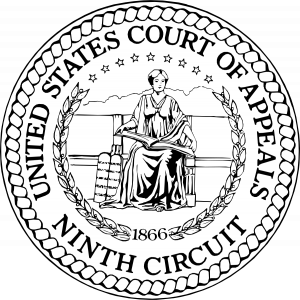 The Ninth Circuit Court of Appeals held that the Alaska law regulating the annual aggregate limit on campaign contributions from nonresidents of Alaska is unconstitutional.
The Ninth Circuit Court of Appeals held that the Alaska law regulating the annual aggregate limit on campaign contributions from nonresidents of Alaska is unconstitutional.
Two members of the three-judge panel found the nonresident limit does not meet an important state interest and therefore violates the First Amendment.
To meet the important state interest bar, the state must show that the law limiting out-of-state contributions is an effort to prevent corruption, not merely to prevent undue influence.
Annual limits on individual contributions to a political candidate, a nonpolitical party group, or what a political party may contribute to a candidate were unanimously held to be constitutional.
October 12, 2018 •
National Group Files Lawsuit Regarding Two South Dakota Ballot Issues
The Institute for Free Speech is challenging the constitutionality of a South Dakota law restricting the organization’s right to publicize views of ballot measures without extensive reporting and disclaimer requirements. The organization is asking for permission from a federal judge […]
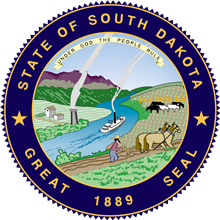 The Institute for Free Speech is challenging the constitutionality of a South Dakota law restricting the organization’s right to publicize views of ballot measures without extensive reporting and disclaimer requirements.
The Institute for Free Speech is challenging the constitutionality of a South Dakota law restricting the organization’s right to publicize views of ballot measures without extensive reporting and disclaimer requirements.
The organization is asking for permission from a federal judge to distribute an analysis of Initiated Measure 24 and Constitutional Amendment W, claiming that the measures will impact citizens’ First Amendment rights.
September 19, 2018 •
U.S. Court of Appeals Upholds IL Contribution Limits
The U.S. Seventh Circuit Court of Appeals upheld the Illinois Disclosure and Regulation of Campaign Contributions and Expenditures Act. In 2012, Liberty PAC filed a lawsuit claiming the Illinois campaign finance law violates the First Amendment by restricting contributions from […]
 The U.S. Seventh Circuit Court of Appeals upheld the Illinois Disclosure and Regulation of Campaign Contributions and Expenditures Act.
The U.S. Seventh Circuit Court of Appeals upheld the Illinois Disclosure and Regulation of Campaign Contributions and Expenditures Act.
In 2012, Liberty PAC filed a lawsuit claiming the Illinois campaign finance law violates the First Amendment by restricting contributions from individual donors, allowing political parties to make unlimited donations during a general election, creating a waiver provision that lifts spending limits, and allowing unlimited contributions from legislative caucus committees.
The U.S. District Court dismissed the first three claims at the pleadings stage due to precedent and conducted a bench trial on the fourth issue and ruled for the state.
The U.S. Circuit Court panel affirmed the lower court’s decision in its entirety and the plaintiffs intend to appeal the decision to the U.S. Supreme Court.
May 24, 2016 •
New York’s JCOPE Budgets to Defend Regulation
Earlier this year, the state Joint Commission on Public Ethics (JCOPE) made a regulatory change requiring public relations professionals to document outreach to editorial boards and report their activity to the state as lobbying. The regulation is now being contested […]
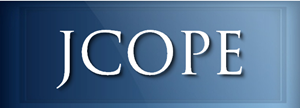 Earlier this year, the state Joint Commission on Public Ethics (JCOPE) made a regulatory change requiring public relations professionals to document outreach to editorial boards and report their activity to the state as lobbying.
Earlier this year, the state Joint Commission on Public Ethics (JCOPE) made a regulatory change requiring public relations professionals to document outreach to editorial boards and report their activity to the state as lobbying.
The regulation is now being contested by public relations firms who have joined in a federal suit challenging the reporting requirement under free speech provisions of the First Amendment. In response, the commission has budgeted $300,000 annually to a legal defense fund to support this measure.
July 31, 2015 •
Austin, Texas Campaign Finance Laws Challenged in Court
On July 27, city of Austin, Texas Councilman Don Zimmerman filed suit seeking a preliminary injunction against city campaign finance provisions relating to blackout periods. The current law only allows officeholders, candidates, and their respective committees to accept campaign contributions […]
 On July 27, city of Austin, Texas Councilman Don Zimmerman filed suit seeking a preliminary injunction against city campaign finance provisions relating to blackout periods. The current law only allows officeholders, candidates, and their respective committees to accept campaign contributions during the last 180 days before an election or recall election. Zimmerman asserts the blackout period banning contributions in the city violates his First Amendment rights of free speech. On February 2, 2015, in Gordon v. City of Houston, a federal district court declared a similar ordinance in the city of Houston as facially unconstitutional and permanently enjoined the city from enforcing the ordinance.
On July 27, city of Austin, Texas Councilman Don Zimmerman filed suit seeking a preliminary injunction against city campaign finance provisions relating to blackout periods. The current law only allows officeholders, candidates, and their respective committees to accept campaign contributions during the last 180 days before an election or recall election. Zimmerman asserts the blackout period banning contributions in the city violates his First Amendment rights of free speech. On February 2, 2015, in Gordon v. City of Houston, a federal district court declared a similar ordinance in the city of Houston as facially unconstitutional and permanently enjoined the city from enforcing the ordinance.
Zimmerman v. City of Austin, Texas, filed in the United States District Court for the Western District of Texas, Austin Division, also claims the law’s imposition of aggregate limits of the total contributions a candidate can accept from sources other than natural persons eligible to vote in a postal zip code completely or partially within the Austin city limits is unconstitutional, creates a burden on campaigns, and does not relate to any threat of corruption. The lawsuit also challenges a 90 day requirement for campaign account terminations. “Political speech is the very core of the First Amendment, but Austin’s campaign finance system seeks to control debate by controlling fundraising and spending,” stated Zimmerman’s attorney, Jerad Najvar, in a press release.
Photo of the Austin, Texas skyline by Erik A. Ellison on Wikimedia Commons.
October 15, 2014 •
Federal Appeals Court Rules for Citizens United
On Tuesday, October 14, the 10th Circuit Court of Appeals ruled Citizens United may air a documentary slamming Colorado liberals without disclosing its backers. The conservative group argued Colorado campaign finance laws burden some speakers while protecting others, in violation […]
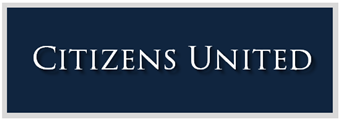 On Tuesday, October 14, the 10th Circuit Court of Appeals ruled Citizens United may air a documentary slamming Colorado liberals without disclosing its backers. The conservative group argued Colorado campaign finance laws burden some speakers while protecting others, in violation of the First Amendment.
On Tuesday, October 14, the 10th Circuit Court of Appeals ruled Citizens United may air a documentary slamming Colorado liberals without disclosing its backers. The conservative group argued Colorado campaign finance laws burden some speakers while protecting others, in violation of the First Amendment.
The court issued an emergency injunction allowing Citizens United to get the film out before the Nov. 4 election. While the movie will be exempt from disclosure, the court will allow the secretary of state to require disclosure for advertisements about it, if the ads are in support or in defeat of a named candidate.
April 17, 2012 •
Preliminary Injunction Denied: Plaintiff federal contractors still prohibited from making federal political contributions
Wagner v. FEC
 A Federal District Court denied a preliminary injunction request demanding the Federal Election Commission (FEC) not enforce a law prohibiting individuals with federal contracts from making political contributions to federal candidates or political parties.
A Federal District Court denied a preliminary injunction request demanding the Federal Election Commission (FEC) not enforce a law prohibiting individuals with federal contracts from making political contributions to federal candidates or political parties.
In Wagner v. Federal Election Commission, filed in the United States District Court for the District of Columbia, the Court rejected challenges to the constitutionality of section 441c of Title 2 of the U.S. Code, which prohibits any vendors with contracts with the federal government from making such contributions.
The case, brought by the ACLU, asked the Court to declare the law unconstitutional as applied to individuals who have personal services contracts with federal agencies. Because federal workers who are not contractors may make federal political contributions, while contractors performing the same work may not, the suit argued section 441c violates both the Equal Protection Clause of the Constitution and the First Amendment.
In denying the preliminary injunction request, the Court concluded the plaintiffs do not have a likelihood of success on the merits of their claims.
November 16, 2010 •
Houston Group Sues to Strike Down Texas Campaign Finance Law
The King Street Patriots, a non-profit, non-partisan group, have counter-sued the Texas Democratic Party while simultaneously asking a state judge to strike down significant portions of the Texas Election Code.
 Citing extensively to the recent U.S. Supreme Court decision in Citizens United v. FEC, King Street Patriots, with the aid of Indiana attorney James Bopp, allege Texas law governing campaign finance contributions is unconstitutional. King Street Patriots claim Texas’s general ban on corporate political contributions violate the principles established in Citizens United because it permits non-corporate groups and individuals to make political contributions, but bans corporations from making the same speech.
Citing extensively to the recent U.S. Supreme Court decision in Citizens United v. FEC, King Street Patriots, with the aid of Indiana attorney James Bopp, allege Texas law governing campaign finance contributions is unconstitutional. King Street Patriots claim Texas’s general ban on corporate political contributions violate the principles established in Citizens United because it permits non-corporate groups and individuals to make political contributions, but bans corporations from making the same speech.
The claim is also advanced Texas’s ban violates the First Amendment and Fourteenth Amendments because it creates an unconstitutional content and speaker-based restriction on speech.King Street Patriots have also targeted Texas law’s reporting requirements associated with direct campaign expenditures by individuals as well as the 30 and 60-day blackout provisions banning contributions by political committees which form close to election dates.
Finally, The King Street Patriots allege Texas law unconstitutionally burdens the free speech of individuals by imposing the same reporting burdens on individuals who wish to make direct campaign contributions over $100 as are associated with political committees conducting a similar activity. The case is currently pending in Travis County District Court.
State and Federal Communications, Inc. provides research and consulting services for government relations professionals on lobbying laws, procurement lobbying laws, political contribution laws in the United States and Canada. Learn more by visiting stateandfed.com.

